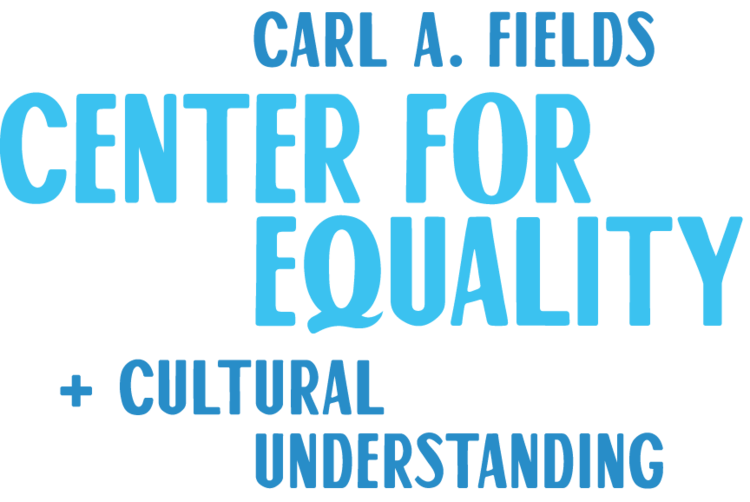The Fields Center was created in 1971 as a result of student prompting, originally as the Third World Center.
Protestor at Nassau Hall. Photo from 1970 Bric-a-Brac.
The Center was established to support students of color, who were arriving at Princeton in increasing numbers, but also to create greater awareness and understanding among all members of the campus community.
For more than 30 years, the Third World Center played an invaluable role in providing a social, cultural and political environment that was responsive to issues of ethnic and racial diversity; that addressed the needs and aspirations of students of color; and that enriched the Princeton experience for all students.
Summer 1972 Minority Orientation Teaching Assistants
By 1995, many students expressed growing concerns about the ambiguous nature of the center’s name. For many, the name was problematic—even divisive. The center’s student governance board decided to address these concerns in 2001. After discussions, surveys and meetings with students, alumni and administrators, the governance board recommended that the center be renamed in honor of Dr. Carl A. Fields, who at Princeton became the first African American administrator in the Ivy League. On April 13, 2002, Princeton’s trustees approved the change, and the center became the Carl A. Fields Center for Equality and Cultural Understanding, effective July 1, 2002.
In the fall of 2009, the Fields Center moved to a new home, at 58 Prospect Avenue, which was designed specifically to facilitate the broad range of center activities that are open to Princeton University and its surrounding communities.
Dr. Carl A. Fields
Paul C. Williams, Dr. Carl A. Fields, and A. Deane Buchanan at the first dinner banquet of Princeton's Association of Black Collegians (May 22, 1968)
Dr. Carl A. Fields, an educator, advocate and the first African American dean of an Ivy League university, served the education field for more than 40 years—improving young lives and challenging malfunctioning systems. He came to Princeton in 1964 as assistant director of student aid, and was promoted to assistant dean of the college in 1968, becoming the first African-American to hold such a high-ranking post at an Ivy League school.
He pioneered creative and practical policies and practices, which increased enrollment and retention of African American and other students of color, Jewish and female students.
He set up the surrogate family hosting program and the community service summer work program and supported the establishment of the Third World Center. He was a very valuable mentor to many Princeton students and helped develop several student associations, including the Association of Black Collegians, the first Princeton student organization focused on the specific concerns of African-Americans and a forerunner to the Association of Black Princeton Alumni. Dr. Fields was also instrumental in establishing the University's Fredrick Douglass Service Award, in 1968, which is given annually on Class Day to a graduating student(s) "who has exhibited courage, leadership, intellectual achievement and a willingness to contribute unselfishly toward a deeper understanding of racial minorities...the tradition of service embodied at Princeton." He also took an active role in the Princeton-Blairstown Center, a University-owned camp that serves inner-city youth and their families. He remained active and engaged with Blairstown and within the University community even after leaving the University in 1971.
Princeton Asian Unity Conference 1978
The oldest of four sons born to Queena R. Grayson Fields and Ralph A. Fields, Carl Fields was born in Columbus, Ohio, and grew up in Brooklyn. He was a graduate of Boy’s High School and graduated from St. John’s University with a B.S. in English and social science in 1942. Fields was the first African American member of St. John's University's Skull and Circle academic honor society and the first African American to serve as captain of the school's track and field team. He served in the U.S. Army during World War II and in 1944 received a Bronze Star for bravery at the Battle of Saipan. He earned his M.A. in vocational guidance from New York University in 1950 and his Ph.D. in educational philosophy from Philathea College, London, Ontario, Canada, in 1967.
Dr. Fields received the Association of Black Princeton Alumni (ABPA) University Service Award in 1985 and the award was subsequently renamed the Dr. Carl A. Fields Memorial University Service Award. He was also honored at an ABPA dinner, in 1994, which was attended by more than 100 alumni, family and friends from the University community, including Dr. Robert F. Goheen '40 *48, the University President when Fields arrived at Princeton and a leading Fields advocate. The Alumni Association of Princeton University recognized Fields' significant contributions in 1996, when he received the Alumni Council Award for Service to Princeton.
Dr. Carl A. Fields passed away on July 20, 1998, at age 79.
To read more about Dr. Fields work please click here





